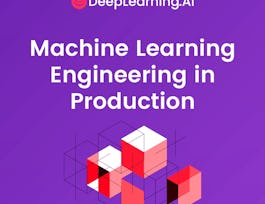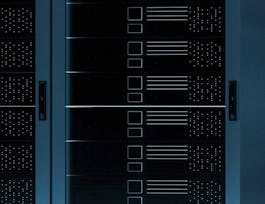Products don't design and build themselves. In this course, students learn how to staff, plan and execute a project to build a product. We explore sensors, which produce tremendous volumes of data, and then storage devices and file systems for storing big data. Finally, we study machine learning and big data analytics.



Project Planning and Machine Learning
This course is part of Developing Industrial Internet of Things Specialization

Instructor: David Sluiter
Sponsored by RIA PAYMENT INSTITUTION
8,236 already enrolled
(106 reviews)
What you'll learn
How to staff, plan and execute a project.
How to build a bill of materials for a product.
How to calibrate sensors and validate sensor measurements.
How hard drives and solid state drives operate.
Skills you'll gain
- Supervised Learning
- Machine Learning Methods
- Data Analysis
- Big Data
- Data Infrastructure
- Analytics
- Software Systems
- Verification And Validation
- Engineering
- System Software
- Machine Learning
- Electrical Engineering
- Information Systems
- Machine Learning Algorithms
- Data Architecture
- Product Engineering
- Business Analytics
- Data Engineering
- Electrical and Computer Engineering
- Applied Machine Learning
Details to know

Add to your LinkedIn profile
4 assignments
See how employees at top companies are mastering in-demand skills

Build your subject-matter expertise
- Learn new concepts from industry experts
- Gain a foundational understanding of a subject or tool
- Develop job-relevant skills with hands-on projects
- Earn a shareable career certificate


Earn a career certificate
Add this credential to your LinkedIn profile, resume, or CV
Share it on social media and in your performance review

There are 4 modules in this course
In this module I share with you my experience in product planning, staffing and execution. You will perform a product tear down, write a paper about your tear down and build a bill of materials (BOM) for that product.
What's included
12 videos2 readings1 assignment1 peer review1 discussion prompt
In this module you will learn about sensors, and in this case, a temperature sensor. You will learn how to calibrate and then validate that a temperature sensor is producing accurate results. We will study how data is stored on hard drives and solid state drives. We will take a brief look at file systems used to store large data sets.
What's included
16 videos1 assignment
In this module we look at machine learning (ML), what it is and how it works. We take a look at a couple supervised learning algorithms and 1 unsupervised learning algorithm. No coding is required of you. Instead I provide working source code to you so you can play around with these algorithms. I wrap up by providing some examples of how ML can be used in the IIoT space.
What's included
22 videos1 assignment
In this module you will learn about big data and why we want to study it. You will learn about issues that can arise with a data set and the importance of properly preparing data prior to a ML exercise.
What's included
19 videos1 assignment
Instructor

Offered by
Why people choose Coursera for their career




Learner reviews
106 reviews
- 5 stars
78.30%
- 4 stars
14.15%
- 3 stars
3.77%
- 2 stars
1.88%
- 1 star
1.88%
Showing 3 of 106
Reviewed on Apr 1, 2019
quizzes can be tougher.
Reviewed on May 28, 2022
Awsomw Materials and Explanations. Dedicatedly you ve to preparare if you wants to improvizing yourself. Thanks by Sam.
Reviewed on May 7, 2023
Excellent course, great introduction to this topic with some nice examples.
Recommended if you're interested in Computer Science

University of Colorado Boulder

DeepLearning.AI

University of Colorado Boulder

University of California, Irvine

Open new doors with Coursera Plus
Unlimited access to 10,000+ world-class courses, hands-on projects, and job-ready certificate programs - all included in your subscription
Advance your career with an online degree
Earn a degree from world-class universities - 100% online
Join over 3,400 global companies that choose Coursera for Business
Upskill your employees to excel in the digital economy

